Ivory Coast
Placide Konan is using his slam poetry performances to protest Ivorian President Alassane Ouattara’s bid for a fourth term in Saturday’s election.
The 33-year-old, who lives in the capital, Abidjan, told the Associated Press that he’s frustrated with the country’s struggles. Despite being one of West Africa’s economic powerhouses and the world’s largest cocoa producer, Côte d’Ivoire faces growing inequality and a poverty rate of 37.5%. More than three-quarters of its population is under 35.
“People can barely make ends meet,” Konan said. “You need a lot of luck, or maybe a bit of magic, to live comfortably,” he added, referring to the bustling port city still basking in the glow of hosting the 2024 Africa Cup of Nations.
According to analysts, the 83-year-old Ouattara is expected to win the election and extend his rule, which began in 2011. Key opposition leaders have been disqualified — including former Credit Suisse CEO Tidjane Thiam. A local court ruled that Thiam held French citizenship, which Ivorian law prohibits for presidential candidates. He called the ruling “abusive” and renounced his French nationality in March.
Ouattara now faces a weakened opposition of four candidates, among them former Trade Minister Jean-Louis Billon and former First Lady Simone Gbagbo.
This election reflects a broader trend of long-serving African leaders clashing with their mostly young populations.
Fears of Violence
About 8.7 million people are registered to vote amid fears of violence — a common feature of past elections.
The ban on major opposition figures has sparked protests that authorities have tried to suppress. Hundreds of demonstrators have been arrested, and some sentenced to prison. The government has restricted public gatherings and deployed over 40,000 security officers. At least three people have been killed.
Critics say the government is exploiting legal loopholes to weaken the opposition and describe the final list of candidates as unfair. The president has denied targeting his opponents.
Recent events “threaten stability at a time when Côte d’Ivoire, like other West African nations, faces major challenges,” said Paul Melly, a consultant with Chatham House’s Africa Programme.
Ouattara rose to power after a political crisis in 2010–2011, when then-President Laurent Gbagbo refused to concede defeat. Around 3,000 people were killed in the unrest.
Ouattara’s Message
Ignoring calls to step down and brushing aside concerns about his age, Ouattara said he is seeking a fourth term because of “unprecedented” security, economic, and monetary challenges.
Speaking to young people at a rally last week, he said, “I have always been committed to giving our youth the best opportunities — to create businesses, to work, to learn, and to be independent.”
He secured a controversial third term in 2020 after arguing that a 2016 constitutional amendment reset his presidential term count. Human rights groups say nearly 100 people were killed following his victory.
“Ouattara maintains near-total control over the state apparatus,” said Séverin Yao Kouamé, a research professor at Bouaké University. “He’s managed to build power alliances even with his rivals, which has helped him prevail.”
Trouble in the North
Supporters of Ouattara point to a relatively strong economy, major infrastructure development across the country, and increased public investment driven by higher revenues and foreign investment.
The World Bank reported that Côte d’Ivoire’s economy grew by 6% in 2024.
“If you had left Côte d’Ivoire for a few years and came back now, you wouldn’t recognise your neighbourhood,” said Assita Karamoko, a hairdresser in Abidjan and Ouattara supporter.
A suburban railway in Abidjan is being expanded, and more rural roads are being paved. What was once an Abidjan-centred economy is now spreading across the country.
“But it’s still very hard to turn that growth into enough jobs for young people. When it comes to youth employment and business opportunities, there’s still a long way to go,” Melly noted.
Security is another challenge. Bordered in the north by Mali and Burkina Faso — both battling armed insurgencies — Côte d’Ivoire faces growing pressure to stop militant groups from advancing toward the West African coast. Both neighbouring junta-led countries have severed ties with the regional bloc, disrupting security cooperation.
Analysts view Côte d’Ivoire’s army as one of the most capable in the region, but as its neighbours lose ground to armed groups, the strain on Ivorian forces is mounting.
“The security situation in the north is fragile and exposed,” Melly said. “It’s not the Ivorian government’s fault, but it’s the reality of the regional context.”



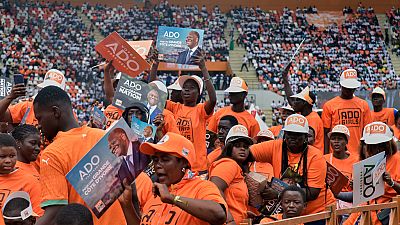


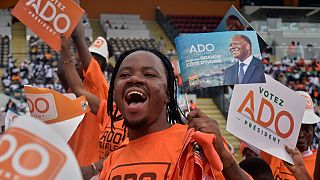
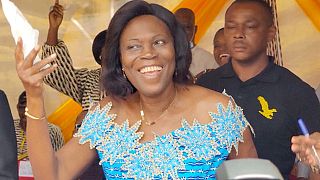
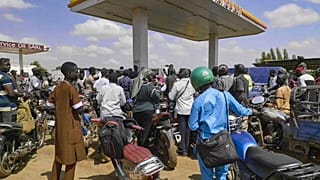
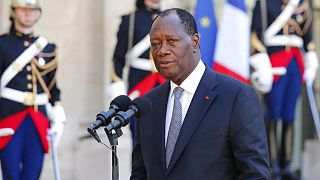
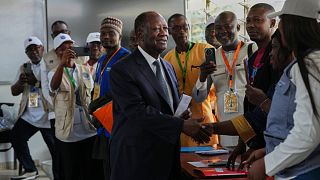
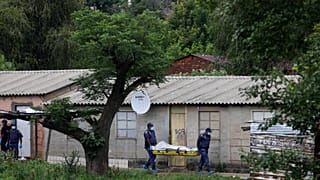
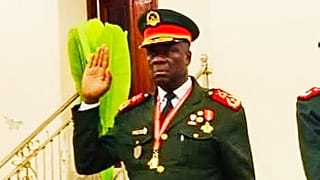
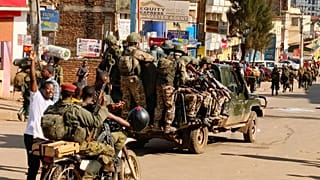
01:13
United Nations decries crackdown on opposition ahead of Ugandan elections
01:05
ECOWAS delegation in Guinea-Bissau for talks with coup leaders
00:51
ECOWAS expels Guinea-Bissau after army general seizes power
Go to video
Several bodies condemn military takeover in Guinea-Bissau days after polls
01:13
Uganda: Bobi Wine's party says hundreds of its supporters arrested at rally
01:03
Guinea-Bissau: Incumbent, main challenger both claim victory in presidential race